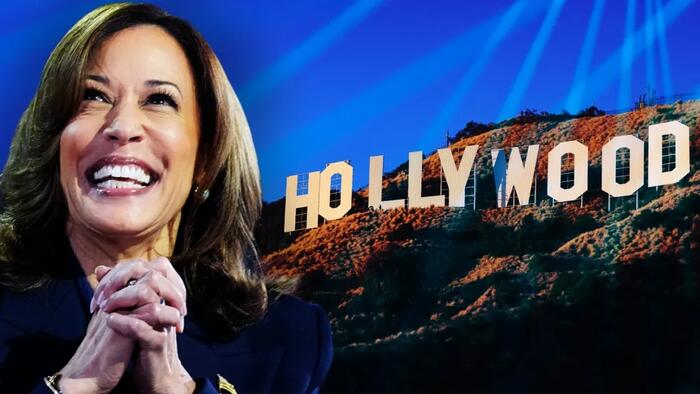Kamala Harris’s recent defeat in the presidential race serves as a significant indication of a broader backlash against an elite political system that has long depended on fabricating public adoration for manufactured figures. The campaign narrative promoted by the Democrats painted Joe Biden as astute and competent; however, that illusion was shattered during a single election debate. Harris’s own campaign tried to craft an image of Democrats as the “joyful party,” heavily relying on celebrity endorsements and mainstream media. Yet, this method of generating enthusiasm proved ineffective, highlighting a notable decline in the influence of celebrity culture over the electorate. As progressive media outlets lauded her campaign as “flawless” due to the numerous endorsements, the lack of substantive economic policies remained a glaring gap in addressing the core concerns of voters.
Despite the Trump campaign also leveraging celebrity endorsements in the past, it starkly differed in execution. While actors and pop stars were integral to Harris’s strategy, they were merely supplementary to Trump’s appeal, who largely relied on his existing fame. The notion that celebrity endorsements are organically influential has come under scrutiny, revealing that many entertainers are not above financial persuasion. Reports suggest Biden and Harris’s campaigns may have spent extravagantly on securing endorsements from social media influencers and celebrities, raising questions about the effectiveness of such tactics. Ultimately, the disparity between financial backing and campaign effectiveness shines a light on the superficiality of attempts to generate an artificial sense of joy that doesn’t resonate with the electorate.
Moreover, the staggering debt of Harris’s campaign, allegedly amounting to $20 million despite raising double the donations compared to Trump, underscores the exhaustion of this approach. It illustrates the financial strain inherent in cultivating a false image bolstered by a celebrity culture that is becoming increasingly alien to the average American. The narrative of unassailable celebrity influence is being punctured by a growing realization of public sentiment toward authenticity in political representation. As legal scrutiny looms over the Hollywood elite, especially with Trump’s administration poised to revisit controversial topics such as corruption and misconduct within Tinsel Town, the glimmer of celebrity relevance appears to be dimming further.
The current climate indicates a profound disconnect between Hollywood and main street, as the entertainment industry struggles with its declining authority as a cultural arbiter. Celebrated figures from this sphere seem trapped in an outdated perception of their ability to sway public opinion, not recognizing the changing tides of political engagement. Their despair over a shifting cultural landscape leads to erratic behavior, illustrating the struggle that comes with newfound irrelevance. The mockery faced by prominent celebrities, such as the pointed satire from Ricky Gervais, exposes the fragility of their arguments for social progressivism, revealing that the public is turning away from the once-lauded celebrity discourse.
In this evolving environment, alternative media platforms have begun to eclipse traditional media narratives, providing space for voices that resonate more genuinely with the populace. Celebrities are no longer able to maintain their polished façades, as the immediacy of social media exposes flaws and absurdities that had previously gone unchallenged. The disconnect between celebrity opinions and public sentiment is now more visible than ever, further eroding the Hollywood image and its hold on cultural relevance. Trump’s recent victory can be seen as an affirmation of a shift in power dynamics, suggesting the coming dismantling of the entrenched elite authority that has long dominated political discourse.
The underlying takeaway from Harris’s electoral challenges is the significant rejection of a political system that has historically leveraged superficial endorsement for genuine electoral support. American citizens are increasingly discerning, prioritizing substantive policies over celebrity backing. In a political landscape marred by dissatisfaction with the status quo, both Harris’s loss and the diminishing sway of celebrities signal a transformative period, characterized by a demand for authenticity that may reshape how future candidates approach their influence and engagement with voters. The decline of outdated elitist methods may pave the way for more meaningful interactions between politicians and the electorate, creating a healthier democratic process moving forward.

